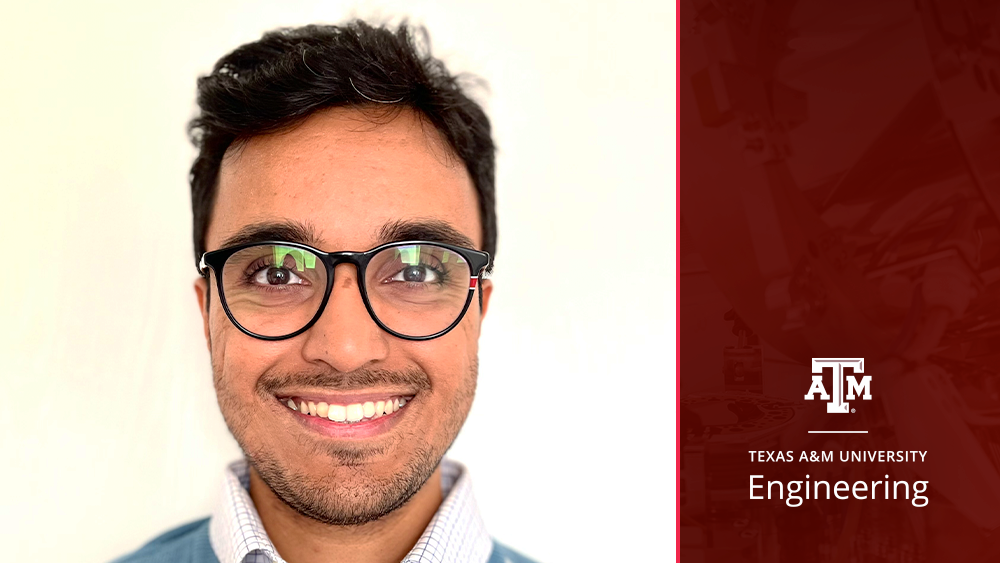
Rohith Karthikeyan, a doctoral student in the J. Mike Walker ’66 Department of Mechanical Engineering at Texas A&M University, was awarded the Best Student Paper Award by the Augmented Cognition Technical Group (ACTG) of the Human Factors and Ergonomics Society (HFES).
Karthikeyan presented his paper, “Visuospatial Working Memory Under Fatigue: Observations with Cerebral Hemodynamics and Heart Rate Variability,” at the 65th International Annual HFES Meeting in Baltimore, Maryland, in October.
Co-authors include Connor Johnson and Joshua Carrizales, two 2021 graduates from the Department of Biomedical Engineering, both of whom were mentored by Karthikeyan through the Aggie Challenge Project hosted by the NeuroErgonomics Lab.
Karthikeyan’s paper focuses on understanding cognitive fatigue, particularly when humans perform tasks for long periods of time. He also aims to understand how to predict human fatigue and intervene ahead of time when symptoms of fatigue are observable.
“It was quite special being recognized this way. I started working in this specific domain (human factors) in 2019, and this was my first time both attending a human factors conference and specifically contributing,” Karthikeyan said. “I am a mechanical engineer and my training is mostly in robotics, but to attend this conference and talk about my research in person after such a long hiatus and being recognized in that way was special.”
Karthikeyan’s doctoral research focuses on understanding, counteracting and predicting mental fatigue. His broader research interests include human augmentation across cognitive, physical and collaborative interactions in human-human and human-robot systems. His present focus is on identifying the physiological representations of cognitive fatigue toward personalized and fieldable neuroadaptive systems.
Karthikeyan is a graduate research assistant in the NeuroErgonomics Lab in the Wm Michael Barnes ’64 Department of Industrial and Systems Engineering. He received his master’s in mechanical engineering from Texas A&M and his bachelor’s in mechanical engineering from B.M.S. College of Engineering in Bengaluru, India.
He had the opportunity to work with Dr. Ranjana Mehta, associate professor in industrial and systems engineering, early on in his master’s program in 2017. This experience motivated his curiosity toward human behavior and interaction within complex systems and his eventual transition to research in human factors with the NeuroErgonomics Laboratory.
“I think human behavior under off-normal states such as fatigue is fascinating, and there remain many unknowns. I hope my research will bring more clarity and operationally significant solutions to the fatigue problem in emergency response,” Karthikeyan said.
His anticipated graduation date is spring 2022, and he aspires to lead a career in academia. He is a College of Engineering Teaching Fellow and a recipient of the fellowship for Preparing Future Faculty in mechanical engineering for 2021-22.
“I am a mechanical engineering student working with a laboratory in industrial engineering, engaged in health and human systems research. So, this was like a vote of confidence that I’m going to take forward in how I do my research,” Karthikeyan said.